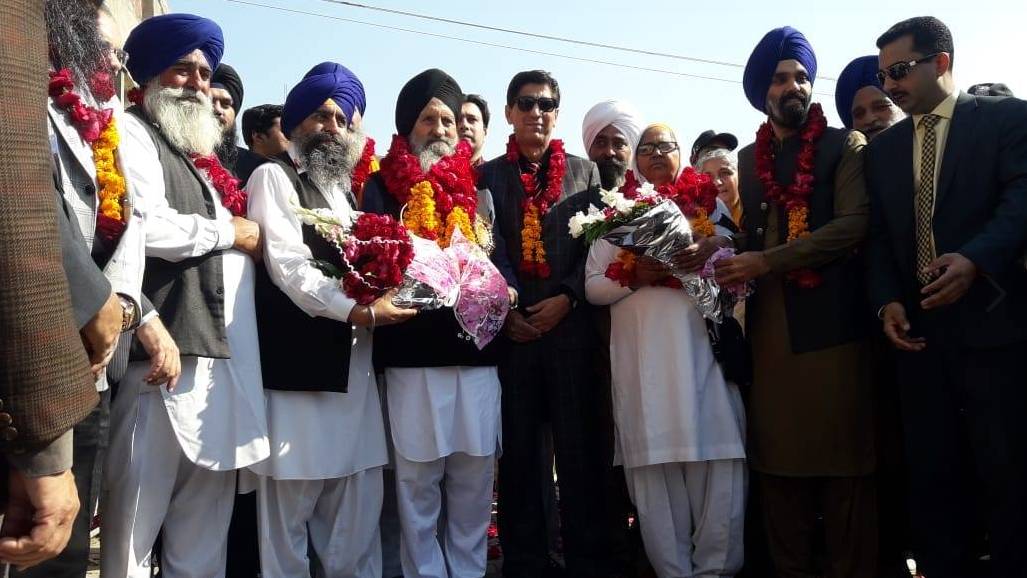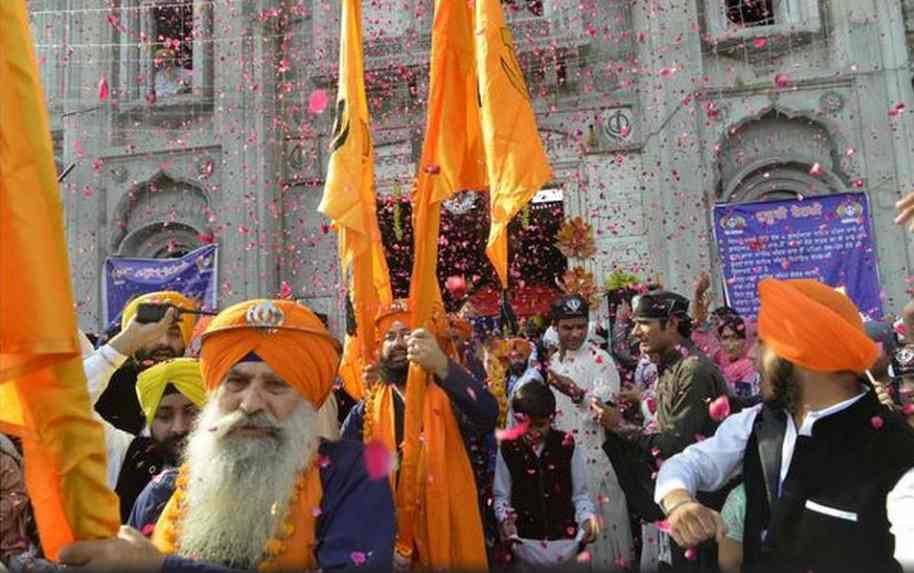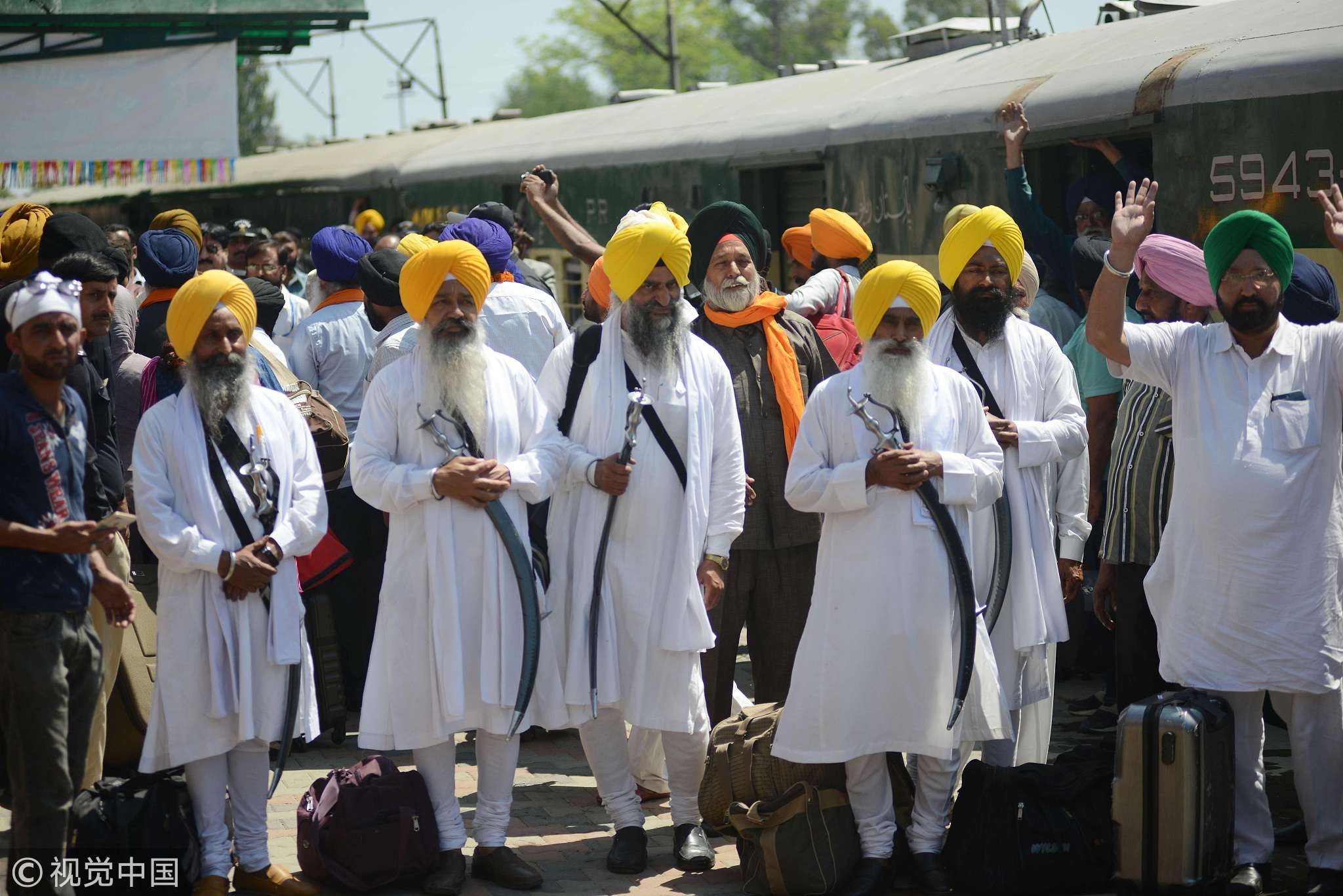
Culture
07:33, 25-Nov-2018
Thousands arrive in Pakistan to mark anniversary of Sikhism's founder
Updated
06:24, 28-Nov-2018
By Nadeem Gill

Sikh pilgrims from India and across the world are visiting Pakistan amid heavy security for the 549th birth anniversary celebrations of Baba Guru Nanak, the Sikh religion's founder who was born in 1469 in present-day Pakistan.
The main celebrations were held on Friday in Nankana Sahib, where the pilgrims gathered after their arrival in Pakistan's eastern city of Lahore.
The anniversary of Guru Nanak's birth is known as "Guru Nayak Jayanti" or "Gurpurab." The day is considered as one of the most sacred in Sikhism and is celebrated with much fervor.
Pakistan said its High Commission in New Delhi alone issued over 3,500 visas for the 10-day celebrations which started on Wednesday in Nankana Sahib, some 80 kilometers from Lahore.
Pakistan's Foreign Office said that over 3,800 visas were issued to Indian pilgrims, which is the largest number in recent years.
Foreign Office spokesman Mohammad Faisal on Wednesday tweeted Pakistan "welcomes Sikh pilgrims from all over the world, (only our mission in New Delhi has issued more than 3500 visas) for the 549 birth anniversary celebrations of #BabaGuruNanak in #Nankanasahib from 21-30 November 2018."
Pakistan's High Commissioner to India Sohail Mahmood termed the move as a "special gesture" from his country to the pilgrims who are also expected to travel to their other holy places in Pakistan.

Pakistani and Indian Sikh devotees take part in a ritual procession at a shrine in Nankana Sahib. /AFP File Photo
Pakistani and Indian Sikh devotees take part in a ritual procession at a shrine in Nankana Sahib. /AFP File Photo
"We extend profound felicitations to our brothers and sisters celebrating this auspicious occasion and wish all yatrees [pilgrims] a spiritually fulfilling yatra," Mahmood said in a statement.
Pakistan said earlier on Tuesday it remained committed to "preserving sacred religious places and extending all possible facilitation for the visiting pilgrims of all faiths."
Pakistani authorities said foolproof security arrangements are made for the pilgrims.
The government officials, as well as organizers of the events, received Indian pilgrims entering the country at the Wagah Railway station near Lahore.
"As many as 3,080 Sikh pilgrims arrived in Lahore today [on Wednesday] on two special trains," the Evacuee Trust Property Board (ETPB) spokesman Amir was quoted by Indian news agency PTI as saying.

Indian Sikh pilgrims arrive at Wagah Railway Station in Pakistan's Wagah border to celebrate Baisakhi, or the Sikh New Year, April 12, 2018. /VCG Photo
Indian Sikh pilgrims arrive at Wagah Railway Station in Pakistan's Wagah border to celebrate Baisakhi, or the Sikh New Year, April 12, 2018. /VCG Photo
The ETPB administers shrines left behind by Hindus and Sikhs who migrated to India after 1947 partition of the Indian subcontinent that saw one of the greatest migrations in human history.
Millions of Muslims at that time headed to West and East Pakistan (now known as Bangladesh) while millions of Hindus and Sikhs trekked in the opposite direction.
Some Sikh holy places, including the birthplace of Baba Guru Nanak, were left behind in Pakistan's eastern province of Punjab, a reason why many of them return every year.
Sikhs comprise 1.7 percent of the Indian population, according to the 2011 census. Their number in Pakistan is not clear as they were excluded from the most recent population census. Some sources put their number at 20,000.
India and Pakistan have fought three wars since independence from Britain.
(Cover: Sikh pilgrims arrive at Wahga Border on November 21, 2018. /Photo courtesy of @SikhInPakistan Facebook Page)

SITEMAP
Copyright © 2018 CGTN. Beijing ICP prepared NO.16065310-3
Copyright © 2018 CGTN. Beijing ICP prepared NO.16065310-3